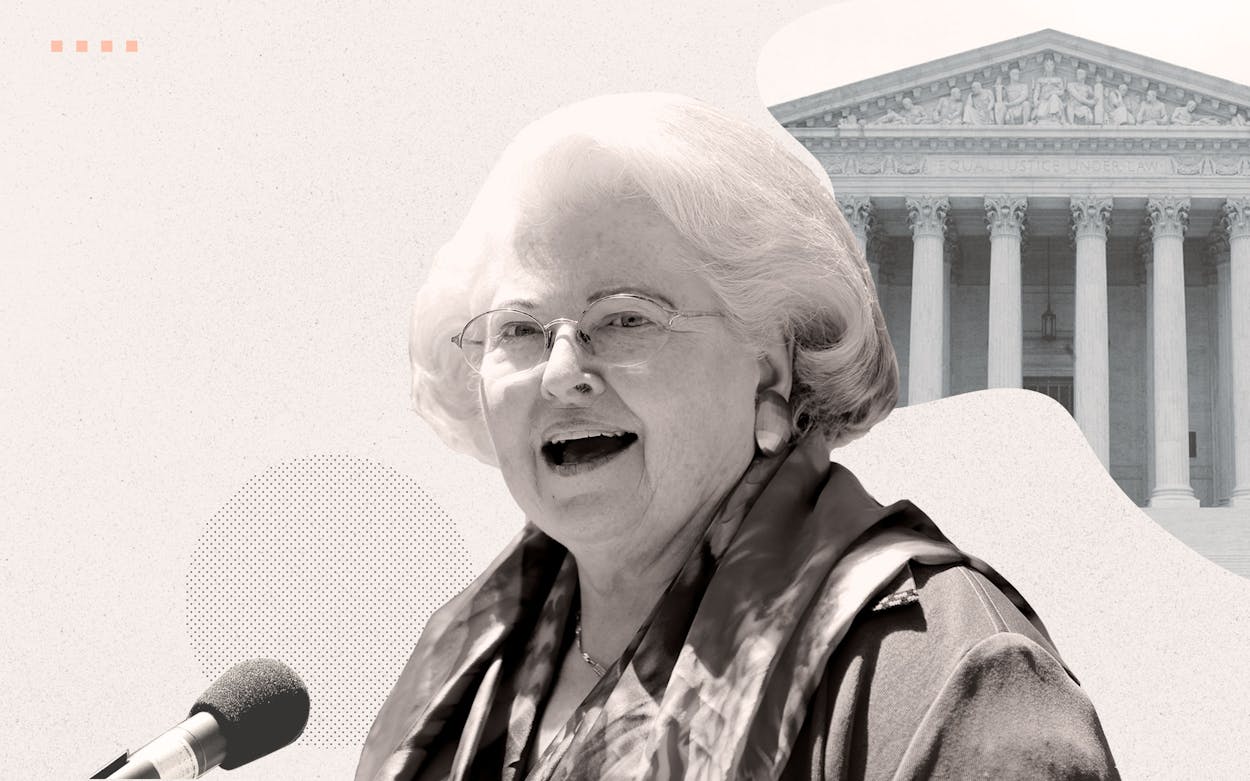After I argued Roe vs. Wade the first time on December 13, 1971, I didn’t know if I was going to win or lose. I thought I’d better run for office to be in a position to prevent the passage of bills that would make abortion illegal or very difficult. I had worked as a clerk typist for the Texas legislature after I finished my undergraduate degree at McMurry University in Abilene, Texas. I spent all of my breaks and lunches and any extra time in the gallery at the Capitol, watching what the legislators were doing. I thought, “I could do that, and hopefully better than it’s being done.” It was a place where a person could have very fast impact, and there were several issues I wanted to change. The case was set for re-argument on October 11, 1972. I learned I’d won on January 22, 1973, shortly after I learned I was sworn in as a legislator.
I filed for state representative at large in Austin and became the first woman to represent Austin and Travis County in the Texas House of Representatives. In 1973 there were five women out of 150 House members.
There was a legislator who had a ranch outside of Austin. He invited me to go there with other legislators. I rode horses and did things with the others. It was a great way to make friends and learn things that the male members respected. On one occasion, I had gone out with a group of legislators; they were practicing shooting on the ranch. One member shot a deer in the gut; it was really a mess. That particular member was one who didn’t like women and was very rude to them. Some of the other legislators came over to me and said, “Sarah, you can deal with a gut shot. Would you show him how to clean it? It would embarrass him, and that’s what he deserves.” So I went over and gut-cleaned his deer while he watched.
In my last year at the UT law school, I signed up for an interview with a Dallas firm. The people sent to interview [me] seemed very impressed, and invited me to come to the home office in Dallas—but they said, “We have to tell you that we pay the way for men to come to the firm, but not women, so you’d have to pay your own way.” I thought that was ridiculous. I complained to Dean Page Keeton, and by that afternoon he changed the rules to require that all firms who interviewed at the UT law school pay travel expenses for both men and women they invited to interview at the home office.
I went to the firm for an interview. However, I did not get a job offer. During the interview, they said things like, “Women have to be home to cook dinner for their husbands, and lawyers have to work late, so how could you do both?” I said, “I worked to put my husband through law school, so I guess I’d figure it out.”
Thirteen years later, while I was working for President Carter, there were three of us who were in charge of recommending to him people who should be appointed as federal judges. The senior partner who was in charge of my interview with that Dallas law firm wanted to be a federal judge. I did some checking on the firm, and found they still didn’t have a record of hiring both men and women. I told President Carter that I was holding this man’s possible nomination up, and Carter told me that he would stand by my decision. That man never got to be a federal judge. You need to be open, and act honorably with women as well as males in the workplace. You should be nice to everyone that you meet because you never know when you’ll need that person’s help.
I learned that you have to be adamant about what you will put up with and what you won’t. It’s partly about having a certain attitude, and partly about increasing awareness of changes in the law. Today’s standards of conduct didn’t exist when I was in the legislature, and those changes are to the credit of many women legislators who have worked together over the years to reach this point.
To see resources about female mentorship, getting involved in local issues, and what to do if you experience sexual harassment, read here.
More from this collection
The Women’s Voices Project
In a series of as-told-to conversations, two dozen Texas women talk about gender, work, and what needs to change for women in their home state. Read their perspectives here.
- More About:
- Politics & Policy






